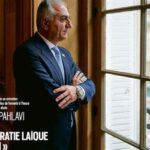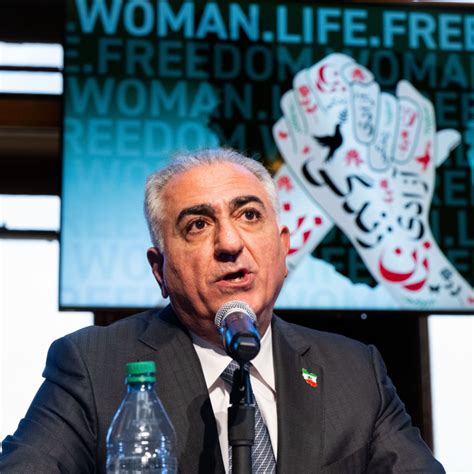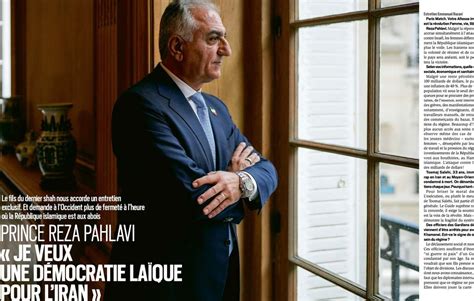
Hundreds of nudists marched through the heart of Mexico City on Saturday, advocating for body positivity and acceptance in the annual World Naked Bike Ride. Participants, both locals and tourists, shed their clothes to challenge societal norms, promote cycling as a sustainable form of transportation, and celebrate freedom of expression.
Mexico City – Hundreds of individuals, embracing vulnerability and liberation, participated in the annual World Naked Bike Ride in Mexico City on Saturday, advocating for body positivity and promoting cycling as an environmentally friendly mode of transportation. The march, a vibrant display of freedom of expression, saw participants shedding their inhibitions and clothing to challenge societal norms and champion self-acceptance.
The procession commenced from the iconic Revolution Monument, snaking through the city’s major arteries, including Paseo de la Reforma, before culminating in the historic center. Participants, representing a diverse range of ages, body types, and backgrounds, chanted slogans promoting body positivity and sustainable transportation, carrying banners with messages promoting self-love and environmental consciousness.
“The objective is to normalize the naked body and show that we are all equal,” stated one participant, emphasizing the march’s core message of inclusivity and acceptance. Another participant highlighted the importance of the event for promoting cycling in a city grappling with traffic congestion and air pollution: “We are also here to demand safer streets for cyclists.”
The Mexico City event mirrored similar demonstrations held globally as part of the World Naked Bike Ride, an international movement advocating for cyclist rights, road safety, and a reduction in reliance on fossil fuels. This year’s march in Mexico City built upon the momentum of previous years, drawing an even larger crowd and garnering increased attention from local media and the public.
Authorities provided traffic control and security to ensure the safety of participants and minimize disruption to city traffic. While the event attracted curious onlookers, it proceeded peacefully, with participants expressing gratitude for the support and tolerance shown by the local population.
The annual event serves as a powerful reminder of the importance of body positivity, acceptance, and the need for sustainable urban transportation solutions. It underscores the growing movement towards embracing diversity and challenging conventional beauty standards, promoting a more inclusive and environmentally conscious society.
Background and Context
The World Naked Bike Ride (WNBR) is a global event that promotes cycling, body positivity, and protests against oil dependency. It takes place in numerous cities worldwide, usually in June, and combines advocacy with a public demonstration that is both provocative and attention-grabbing. The Mexico City WNBR has become an annual fixture, growing in size and visibility each year.
The event’s roots lie in the intersection of environmental activism and body acceptance. Organizers and participants argue that cycling is a sustainable alternative to motorized transportation, reducing carbon emissions and promoting healthier lifestyles. The naked aspect of the ride is meant to draw attention to the vulnerability of cyclists on roads dominated by cars and to challenge societal norms about nudity and body image.
In Mexico City, the WNBR also addresses specific local issues, such as traffic congestion, air pollution, and the lack of safe infrastructure for cyclists. The city faces significant environmental challenges, and advocates argue that promoting cycling is essential for creating a more livable urban environment.
The ride also takes on a cultural significance in a society that often perpetuates rigid beauty standards and body shaming. By embracing nudity in a public space, participants challenge these norms and promote self-acceptance, regardless of body size, shape, or appearance.
Planning and Logistics
Organizing an event like the WNBR requires careful planning and coordination. In Mexico City, organizers work closely with local authorities to obtain permits, secure routes, and ensure the safety of participants. The route is typically planned to maximize visibility and minimize disruption to traffic.
Safety is a paramount concern. Organizers provide guidelines for participants to protect themselves from the sun and ensure their personal safety. Volunteers are stationed along the route to provide assistance and support. The presence of police and other security personnel helps to maintain order and prevent incidents.
The event is promoted through social media, websites, and local media outlets. Organizers use these platforms to disseminate information about the ride, including the route, schedule, and guidelines for participation. They also use these channels to communicate the event’s message and raise awareness about the issues it addresses.
Participants’ Motivations
Participants in the Mexico City WNBR come from diverse backgrounds and have various motivations for taking part. Some are drawn to the event by its environmental message, while others are primarily interested in promoting body positivity and self-acceptance. Still others are simply looking for a fun and liberating experience.
For many participants, the ride is an opportunity to express their individuality and challenge societal norms. They see it as a way to reclaim their bodies and celebrate their natural beauty. The act of stripping naked in public can be empowering, allowing participants to overcome inhibitions and embrace self-confidence.
Environmental activists see the WNBR as a powerful tool for raising awareness about the need for sustainable transportation. They argue that cycling is a viable alternative to cars and that cities should invest in infrastructure to support cyclists. The ride also serves as a protest against the dominance of the automobile and the negative impacts of oil dependency.
Public Reaction and Media Coverage
The Mexico City WNBR typically generates a mix of reactions from the public. Some people are supportive and applaud the event’s message, while others are critical or even offended by the nudity. However, the event has generally been well-received, and it has become a recognized part of the city’s cultural landscape.
Media coverage of the WNBR has been generally positive, focusing on the event’s message of body positivity and environmental sustainability. News outlets often highlight the event’s colorful and provocative nature, attracting attention and generating discussion about the issues it raises.
However, the event has also faced criticism from some quarters. Some religious groups and conservative commentators have condemned the nudity as indecent and disrespectful. Others have raised concerns about safety and security.
Despite these criticisms, the WNBR has continued to grow in popularity and influence. It has become a powerful symbol of resistance against societal norms and a celebration of individuality and freedom.
Impact and Legacy
The Mexico City WNBR has had a significant impact on the city’s cultural and political landscape. It has helped to raise awareness about the need for sustainable transportation and has contributed to the growing movement for cyclist rights. It has also promoted body positivity and self-acceptance, challenging rigid beauty standards and encouraging people to embrace their natural bodies.
The event has inspired other initiatives and campaigns aimed at promoting cycling and improving road safety. It has also helped to create a more inclusive and tolerant society, where people feel free to express themselves and challenge societal norms.
The legacy of the Mexico City WNBR is one of empowerment, resistance, and hope. It is a reminder that individuals can make a difference by standing up for what they believe in and challenging the status quo. It is a celebration of the human spirit and a testament to the power of collective action.
Quotes from the Source (Yahoo News Article):
- “The objective is to normalize the naked body and show that we are all equal.”
- “We are also here to demand safer streets for cyclists.”
Expanded Details and Contextual Information
The act of stripping naked for a cause, especially in a country with diverse cultural values like Mexico, can be seen as a bold statement. The organizers and participants carefully navigate these cultural sensitivities by framing the act as a form of protest against unrealistic beauty standards and as a means of highlighting the vulnerability of cyclists. By removing their clothes, cyclists symbolically expose themselves to the dangers of traffic and the pollution caused by cars.
The Mexico City government’s response to the WNBR has been largely supportive, providing traffic control and security to ensure the safety of the participants. This support reflects a growing awareness of the importance of cycling as a sustainable form of transportation and a recognition of the event’s cultural significance.
However, the event has also faced challenges, including occasional protests from conservative groups and concerns about public decency. Organizers address these concerns by emphasizing the peaceful and non-violent nature of the demonstration and by working to educate the public about its message.
The WNBR is part of a broader movement for sustainable transportation and cyclist rights that is gaining momentum around the world. Cities are increasingly investing in cycling infrastructure, such as bike lanes and bike-sharing programs, to encourage people to switch from cars to bicycles. The WNBR plays a role in raising awareness about these issues and advocating for policies that support cycling.
Analysis of Body Positivity and Societal Norms
The World Naked Bike Ride is deeply rooted in the body positivity movement, which seeks to challenge and dismantle unrealistic and harmful beauty standards imposed by society and the media. The movement advocates for the acceptance of all bodies, regardless of size, shape, skin color, gender, or ability. It promotes the idea that everyone deserves to feel confident and comfortable in their own skin.
In many cultures, including Mexico, there is significant pressure to conform to certain beauty ideals. These ideals often emphasize thinness, youthfulness, and specific physical features. This can lead to body shaming, low self-esteem, and mental health issues.
The WNBR challenges these norms by creating a space where people can celebrate their bodies in all their diversity. By stripping naked in public, participants defy societal expectations and send a message that all bodies are beautiful and worthy of respect.
The event also aims to raise awareness about the negative impact of body shaming and promote a more inclusive and accepting culture. It encourages people to challenge their own biases and to treat others with kindness and respect, regardless of their appearance.
Environmental Implications and Sustainable Transportation
The WNBR’s environmental message is equally important. The event aims to promote cycling as a sustainable form of transportation and to raise awareness about the negative impacts of oil dependency.
Cars are a major source of air pollution and greenhouse gas emissions, contributing to climate change and harming public health. Cycling, on the other hand, is a clean and efficient mode of transportation that produces no emissions.
By encouraging people to cycle, the WNBR helps to reduce air pollution, lower carbon emissions, and promote a healthier lifestyle. It also sends a message to policymakers about the need to invest in cycling infrastructure and create more bike-friendly cities.
The event is part of a broader movement for sustainable transportation that is gaining momentum around the world. Cities are increasingly adopting policies to encourage cycling and reduce car use, such as building bike lanes, implementing congestion pricing, and promoting public transportation.
The WNBR plays a role in raising awareness about these issues and advocating for policies that support sustainable transportation. It also inspires people to make small changes in their own lives, such as cycling to work or school, that can have a big impact on the environment.
Challenges and Controversies
Despite its positive message and growing popularity, the WNBR has faced its share of challenges and controversies.
One of the main challenges is dealing with public perceptions of nudity. Nudity is often seen as taboo in many cultures, and some people find the WNBR to be offensive or inappropriate.
Organizers address these concerns by emphasizing the peaceful and non-violent nature of the demonstration and by working to educate the public about its message. They also stress that the event is not about sexual exhibitionism but rather about promoting body positivity and sustainable transportation.
Another challenge is ensuring the safety and security of participants. The event takes place in a public space, which can be vulnerable to crime and harassment.
Organizers work closely with local authorities to provide traffic control and security. They also provide guidelines for participants to protect themselves from the sun and ensure their personal safety.
The event has also faced criticism from some religious groups and conservative commentators, who condemn the nudity as indecent and disrespectful.
Organizers respond to these criticisms by defending the right to freedom of expression and by arguing that the event is a legitimate form of protest. They also point out that the WNBR is a peaceful and non-violent event that aims to promote positive social change.
Future Outlook and Potential for Growth
The World Naked Bike Ride in Mexico City has the potential to continue growing and expanding its impact in the years to come. As awareness of the event increases and more people become interested in its message, it is likely to attract even larger crowds.
Organizers can continue to build on the event’s success by partnering with local businesses and organizations to promote cycling and sustainable transportation. They can also use social media and other platforms to reach a wider audience and raise awareness about the issues the event addresses.
The WNBR can also serve as a model for other cities and countries that are looking to promote body positivity and sustainable transportation. By sharing their experiences and best practices, organizers can help to inspire others to take action and create positive social change.
The future of the WNBR in Mexico City looks bright, and it is poised to continue making a significant contribution to the city’s cultural and political landscape.
Frequently Asked Questions (FAQ)
1. What is the World Naked Bike Ride (WNBR)?
The World Naked Bike Ride (WNBR) is an international event that promotes cycling, body positivity, and protests against oil dependency. Participants ride bicycles naked or nearly naked through city streets to raise awareness about these issues.
2. Why do people participate in the WNBR?
People participate for various reasons, including:
- Promoting body positivity and self-acceptance.
- Advocating for cyclist rights and road safety.
- Protesting against oil dependency and promoting sustainable transportation.
- Expressing their individuality and challenging societal norms.
3. Is the WNBR legal?
The legality of the WNBR varies depending on local laws and regulations. In Mexico City, the event is generally permitted, but organizers must obtain permits and work with authorities to ensure the safety of participants and the public.
4. What safety precautions are taken during the WNBR?
Organizers take several safety precautions, including:
- Providing traffic control and security with the assistance of local authorities.
- Offering guidelines for participants to protect themselves from the sun.
- Stressing the importance of respecting public decency and avoiding offensive behavior.
5. What impact does the WNBR have on the community?
The WNBR can have several positive impacts, including:
- Raising awareness about the need for sustainable transportation.
- Promoting body positivity and self-acceptance.
- Encouraging people to challenge societal norms and express their individuality.
- Contributing to a more inclusive and tolerant society.
The Mexico City WNBR, like its counterparts around the globe, serves as a vivid and visceral reminder of the intertwined issues of environmental sustainability, personal freedom, and the ongoing struggle to redefine beauty standards. By taking to the streets, participants not only challenge the status quo but also invite a broader conversation about the kind of world we want to create – one that is both healthier and more accepting. The annual ride is more than just a spectacle; it’s a statement, a protest, and a celebration all rolled into one, leaving a lasting impression on the city and its inhabitants.









